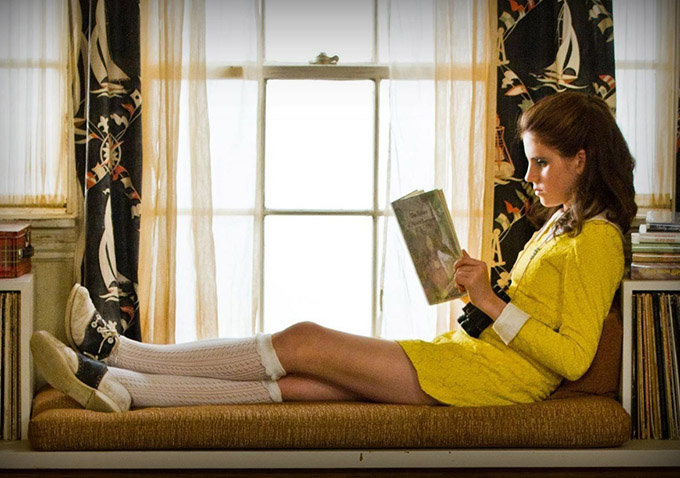 Right from the get-go, Wes Anderson’s bookish sensibility has been a huge part of his appeal. His first two films, “Bottle Rocket” and “Rushmore,” are imbued with the kind of dense, rich characterization that you typically find only in good fiction. But it wasn’t until his third and arguably best film, 2001’s family epic “The Royal Tenenbaums,” that Anderson’s literary leanings blossomed into a fully realized stylistic obsession. His inclinations as such have been in place ever since, from the short stories that pop up in “The Darjeeling Limited” (“the characters are all fictional”, as one character is fond of saying), the meticulously illustrated children’s books favored by Suzy Bishop in “Moonrise Kingdom” and the arch, omnipotent narration and storybook structure of his most recent concoction “The Grand Budapest Hotel.”
Right from the get-go, Wes Anderson’s bookish sensibility has been a huge part of his appeal. His first two films, “Bottle Rocket” and “Rushmore,” are imbued with the kind of dense, rich characterization that you typically find only in good fiction. But it wasn’t until his third and arguably best film, 2001’s family epic “The Royal Tenenbaums,” that Anderson’s literary leanings blossomed into a fully realized stylistic obsession. His inclinations as such have been in place ever since, from the short stories that pop up in “The Darjeeling Limited” (“the characters are all fictional”, as one character is fond of saying), the meticulously illustrated children’s books favored by Suzy Bishop in “Moonrise Kingdom” and the arch, omnipotent narration and storybook structure of his most recent concoction “The Grand Budapest Hotel.”
Save for his delightful stop-motion yarn “Fantastic Mr. Fox,” Anderson has never made an outright adaptation —although ‘Grand Budapest’ is said to be loosely inspired by the work of Austrian novelist and playwright Stefan Zweig. And yet his literary influences —J.D. Salinger is all over “Rushmore” and ‘Tenenbaums’ occasionally recalls the anarchic screwball milieu of P.G. Wodehouse— remains proudly on his sleeve, presumably in his preferred font of Futura Bold. Luis Azevedo of The A To Z Review examines Anderson’s yen for all things bound and printed in a nifty new video essay titled “Biblophilia: Books in the Films of Wes Anderson.” It’s a must-see for Wes-o-philes and perhaps for the uninitiated as well.
Within the first few minutes of the video, one notices that Anderson’s characters read a lot, often in bunk beds or the cramped corridors of the director’s typically fastidious fantasy interiors. It’s certainly fitting for a filmmaker who seems to have spent a good chunk of his childhood with his head buried in books and movies. The video also highlights the increased presence of narration in Anderson’s films —a technique that has been employed more overtly in his last two features but was also present in ‘Tenenbaums’— as well as the delicate, very specific narrative rhythm that feels definitively literary.
Anderson’s films often unfold in rarefied microspheres of exaggerated reality, where wistfulness and powerful melancholy are parramount. It’s a very cool and intellectual world his films inhabit, and that careful balance he strikes certainly has its roots in great European and American fiction. It’s a point that’s gorgeously driven home in a visual callback to a classic scene in ‘Rushmore,’ where Max Fischer finds himself drawn into the fold of his beloved Ms. Cross through a Jacques Cousteau quote scribbled onto the page of a weathered old oceanography textbook. Go figure. In the meantime, watch the entirety of Azevedo’s video essay below. [via AV Club]

